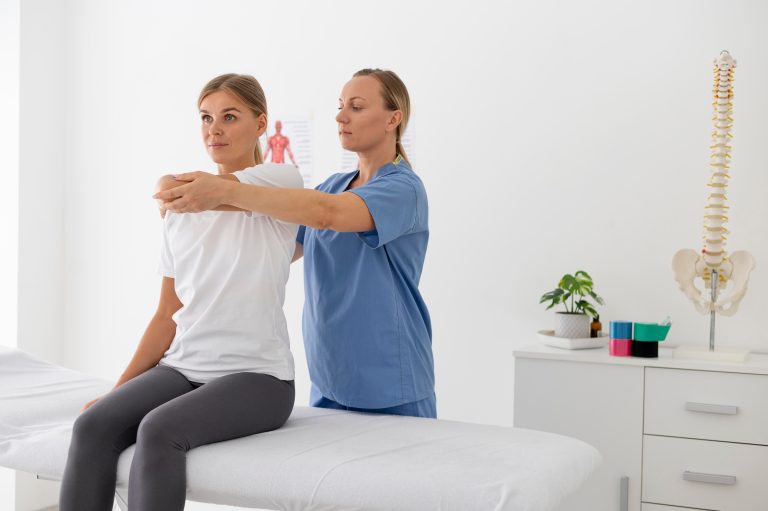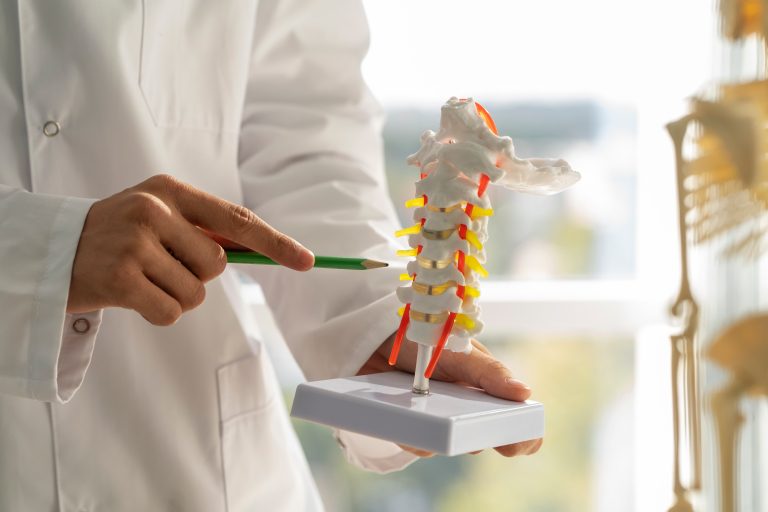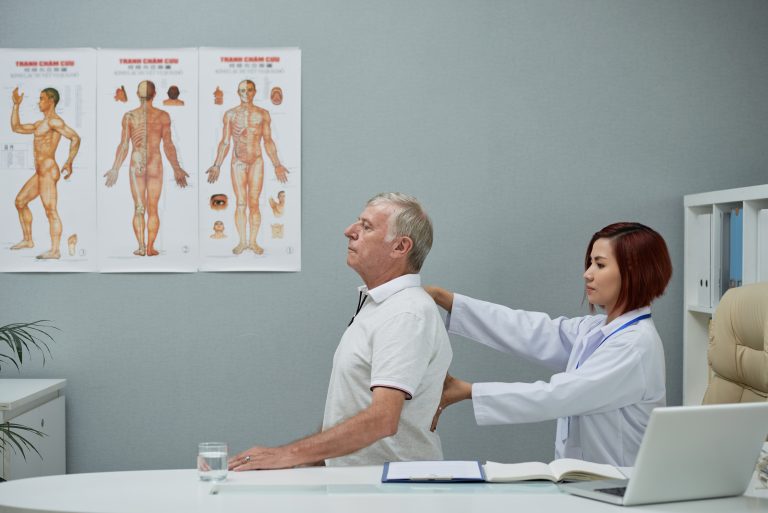Disc problems, such as herniated discs, bulging discs, and degenerative disc disease, are common causes of back pain and discomfort. These conditions can significantly impact your quality of life, making it difficult to perform daily activities. Spinal decompression therapy is an innovative, non-surgical treatment that can effectively address disc problems and provide relief from pain. At Spinal Recovery Center in Warren, Michigan, we offer spinal decompression therapy as part of our comprehensive approach to treating spinal conditions. Here, we explore how spinal decompression helps with disc problems and what you can expect from this therapy.
Understanding Disc Problems
The spinal discs are soft, gel-filled cushions located between the vertebrae. They act as shock absorbers and allow for flexibility in the spine. When discs become damaged or deteriorate, they can cause significant pain and discomfort.
Common disc problems include:
- Herniated Discs: Occur when the inner gel-like core of the disc leaks out through a tear in the outer layer, pressing on nearby nerves.
- Bulging Discs: Occur when the disc protrudes outward but does not rupture, potentially compressing nerves.
- Degenerative Disc Disease: Results from the gradual wear and tear of the discs, leading to reduced disc height and increased pain.
How Spinal Decompression Therapy Works
Spinal decompression therapy involves the use of a specialized table that gently stretches the spine. This process creates negative pressure within the spinal discs, which can help alleviate pain and promote healing.
Key aspects of spinal decompression therapy:
- Gentle Stretching: The therapy involves controlled, gentle stretching of the spine, which helps create negative pressure within the discs.
- Pressure Reduction: The negative pressure can cause the herniated or bulging discs to retract, taking pressure off the nerves and reducing pain.
- Nutrient Flow: The stretching also enhances the flow of oxygen, water, and nutrient-rich fluids into the discs, promoting healing and disc health.
Benefits of Spinal Decompression for Disc Problems
- Non-Surgical Treatment
Spinal decompression offers a non-invasive alternative to surgery, providing relief without the risks and recovery time associated with surgical procedures.
Advantages:
- No Incisions: No need for surgical cuts or invasive procedures.
- Minimal Recovery Time: Patients can resume normal activities more quickly compared to post-surgical recovery.
- Reduced Risk: Lower risk of complications compared to surgery.
- Effective Pain Relief
Spinal decompression can significantly reduce pain by addressing the underlying cause of disc problems.
Pain relief mechanisms:
- Nerve Decompression: Reducing pressure on compressed nerves alleviates pain and discomfort.
- Disc Rehydration: Improved nutrient flow helps rehydrate and heal damaged discs, reducing pain over time.
- Improved Mobility and Function
By relieving pressure on the spinal discs and nerves, spinal decompression can improve mobility and overall spinal function.
Mobility benefits:
- Enhanced Flexibility: Reduced disc pressure allows for greater spinal flexibility and range of motion.
- Better Function: Patients often experience improved function in daily activities and reduced limitations.
- Promotes Natural Healing
Spinal decompression therapy supports the body’s natural healing processes, promoting long-term disc health and preventing future problems.
Healing benefits:
- Increased Nutrient Flow: Enhanced circulation of essential nutrients to the discs supports natural healing.
- Disc Rehydration: Improved fluid exchange helps maintain disc health and prevent further degeneration.
- Customized Treatment Plans
Spinal decompression therapy can be tailored to each patient’s specific needs, ensuring the most effective and personalized treatment.
Customization aspects:
- Individualized Protocols: Treatment plans are designed based on the patient’s specific condition and response to therapy.
- Adjustable Settings: The decompression table settings can be adjusted to target specific areas of the spine and optimize treatment outcomes.
What to Expect During Spinal Decompression Therapy
- Initial Consultation
Your first visit will include a thorough consultation to assess your condition, medical history, and suitability for spinal decompression therapy.
Consultation steps:
- Health History Review: Discuss your symptoms, medical history, and previous treatments.
- Physical Examination: Perform a physical exam to evaluate your spine and identify the source of your pain.
- Diagnostic Imaging: X-rays or MRI scans may be used to get a detailed view of your spinal condition.
- Treatment Sessions
During a typical spinal decompression session, you will lie on a specialized table while a harness is placed around your pelvis and another around your torso. The table gently stretches your spine according to a pre-set program.
Session details:
- Comfortable Positioning: You will be positioned comfortably on the table.
- Controlled Stretching: The table will slowly and gently stretch your spine.
- Session Duration: Each session typically lasts about 30 to 45 minutes.
- Post-Treatment Care
After the session, your chiropractor may recommend additional therapies or exercises to enhance the benefits of spinal decompression.
Post-treatment recommendations:
- Exercises: Specific exercises to strengthen the spine and support healing.
- Lifestyle Adjustments: Advice on posture, ergonomics, and activities to prevent future problems.
- Follow-Up Visits: Regular follow-up visits to monitor progress and adjust the treatment plan as needed.
Why Choose Spinal Recovery Center for Spinal Decompression?
At Spinal Recovery Center in Warren, Michigan, we are dedicated to providing effective, non-surgical treatments for disc problems and other spinal conditions. Our experienced team of chiropractors and physical therapists utilizes state-of-the-art spinal decompression technology and personalized treatment plans to help you achieve lasting relief and improved spinal health.
For more information or to schedule a consultation, visit our website or call us directly. Let us help you find relief from disc problems and support your journey to better spinal health.




